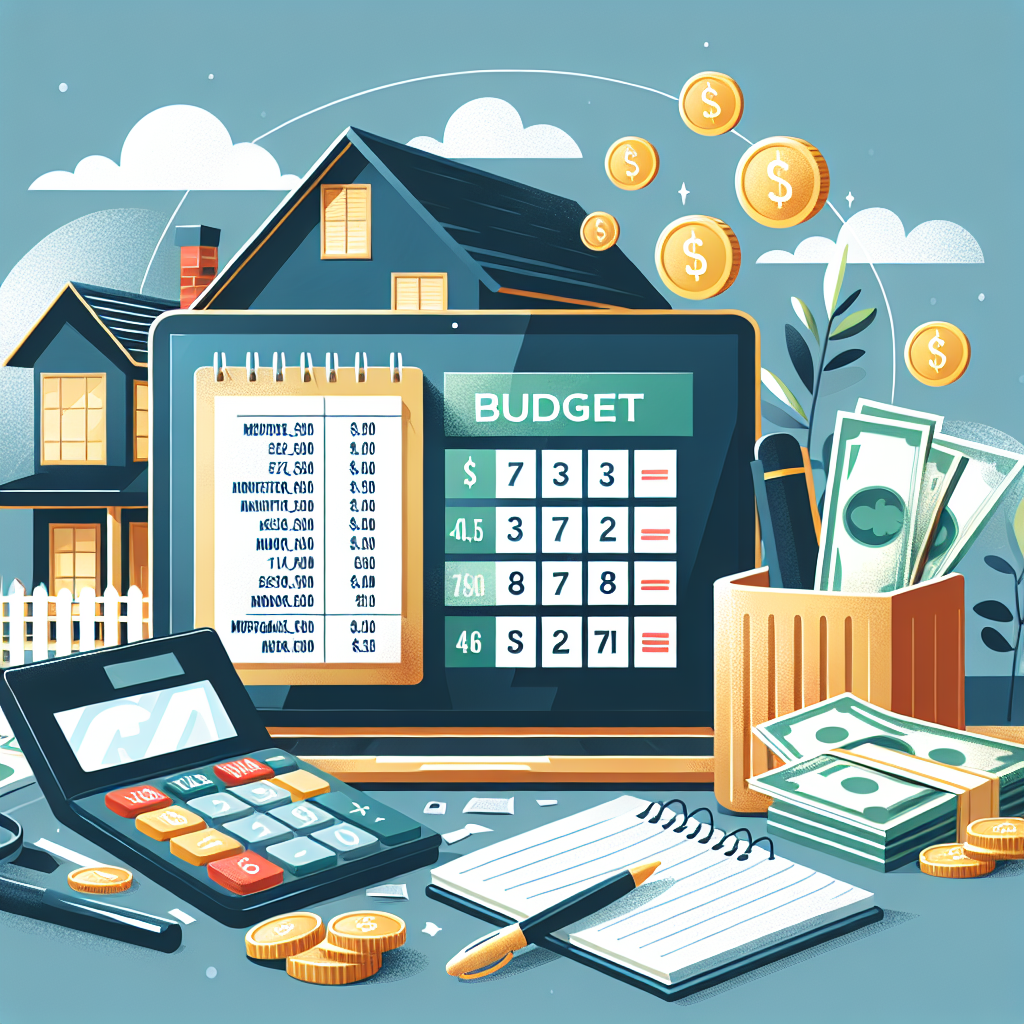Becoming a homeowner is a significant milestone, but it comes with its own set of financial responsibilities. From monthly mortgage payments to unexpected maintenance expenses, managing your budget effectively is crucial to maintaining your new home. In this article, we’ll explore practical tips and strategies to help homeowners budget wisely, ensuring financial stability and peace of mind.
Understanding Your Mortgage Payments
Fixed vs. Variable Rates
One of the first steps in budgeting as a homeowner is understanding your mortgage payments. Mortgages typically come with fixed or variable interest rates. A fixed-rate mortgage keeps your payments consistent throughout the loan, while a variable rate can change based on the market. Knowing the differences can help you plan for future payments more effectively.
Calculate Your Total Monthly Payment
Your total monthly mortgage payment includes principal, interest, taxes, and insurance (PITI). It’s essential to calculate all these components to get a clear picture of your monthly outgoings. Use online mortgage calculators to help you understand various scenarios and find a payment you can afford.
Budgeting for Home Maintenance
Set Aside a Maintenance Fund
Home maintenance can sometimes be overlooked in a homeowner’s budget. However, experts recommend setting aside 1% to 3% of your home’s value annually for maintenance. This fund will come in handy for unexpected repairs or regular upkeep, such as roof inspections, plumbing, or HVAC servicing.
Create a Seasonal Maintenance Checklist
Drafting a seasonal maintenance checklist helps you stay on top of home upkeep. Regular tasks such as cleaning gutters, servicing air conditioning units, and checking smoke detectors can prevent costly repairs in the long run. Allocate funds in your budget for these tasks to ensure you’re prepared.
Utilizing Budgeting Tools and Apps
Explore Budgeting Applications
In today’s digital age, various budgeting apps can help homeowners track their expenses. Apps like Mint, You Need A Budget (YNAB), and EveryDollar allow users to categorize expenses, set limits, and even monitor mortgage payments. Utilizing these tools can streamline your budgeting process and give you insights into spending patterns.
Create a Spreadsheet
If you prefer a more hands-on approach, consider creating a simple budgeting spreadsheet. This can allow for customization based on your income, expenses, and savings goals. By updating it regularly, you can keep a close eye on your financial health and adjust as needed.
Planning for Emergency Expenses
Build an Emergency Fund
Every homeowner should prioritize setting up an emergency fund to cover unexpected expenses. Financial experts generally recommend saving three to six months’ worth of living expenses. This fund can be a lifesaver in situations like sudden roof leaks or unexpected appliance replacements.
Know When to Call a Professional
While DIY repairs can save money, some issues require professional assistance. Always budget for hiring experts when necessary. Knowing your limits and recognizing when a problem is beyond your skill level can save you from more extensive damage and costs later on.
Exploring Additional Income Streams
Rent Out a Room
If space allows, consider renting out a room or offering short-term rental accommodations. This extra income can significantly offset your mortgage payment and contribute to your maintenance fund. Platforms like Airbnb make it easier than ever to list your space.
Side Gigs and Freelancing
Consider leveraging your skills for additional income. Freelancing or starting a side gig can provide you with extra cash flow to enhance your budget. From graphic design to consulting, the possibilities are endless, and the additional funds can make a significant difference in your financial health.
Conclusion: Long-term Financial Wellness for Homeowners
Budgeting as a homeowner doesn’t have to be overwhelming. By understanding your mortgage, planning for maintenance, leveraging tools and applications, and setting aside emergency funds, you can maintain control over your finances. Additional income streams can further ease your financial burden, ensuring that you not only enjoy your home but also secure your financial future. Happy budgeting!

